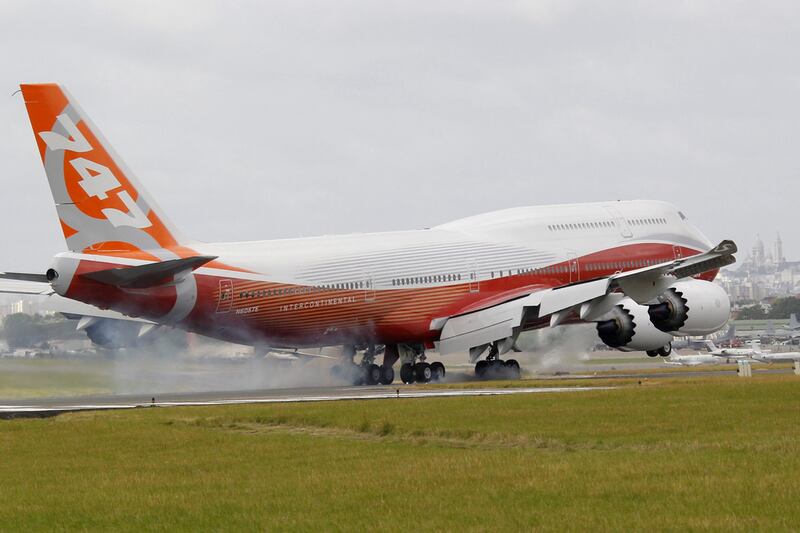An aviation safety regulation regarded as “a matter of life and death” by a senior US transport chief to prevent catastrophic fires involving shipments of rechargeable batteries on planes in America has stalled under the US president Donald Trump.
The US is the world’s largest aviation market and regulations extending international rules to domestic flights were on the verge of being published when Mr Trump took office on January 20, according to the AP news agency. But he signed an executive order freezing the publication of new regulations based on an International Civil Aviation Organisation (ICAO) ban. That means airlines and cargo operators do not have to abide by the international standard for domestic flights in the US.
Lithium-ion battery fires can burn at up to almost 595°C, close to the melting point of the aluminium used in aircraft construction. In a test by the US Federal Aviation Authority, batteries packed into a simulated aircraft cargo hold caught fire and exploded in under a minute, leading to an inferno that would have destroyed an aircraft.
“If we don’t start following the ICAO guidelines and stop stuffing giant boxes of lithium batteries that are fully charged into passenger aircraft, sooner or later we’re going to kill a lot of people,” said Peter DeFazio, the House transportation committee’s senior Democrat.
In 2011 an Asiana Airlines Boeing 747-400F cargo plane crashed after one of the pilots mentioned an aft cargo fire and that the aircraft was descending to 10,000ft (3,050m). The plane was operating Seoul-Shanghai on 28 July 2011, when it came down about 130km west of Jeju while attempting to divert to the island. A consignment of batteries is believed to have been involved in the accident. Data from a Korean monitoring and control station suggest the aircraft fell some 10,000ft in 90 seconds, according to FlightGlobal. As it descended, the captain said there were problems with the rudder and flight controls and the first officer added, shortly afterwards: “We have heavy vibration on the airplane, may need to make an emergency landing, emergency ditching. Altitude control is not available due to heavy vibration, going to ditch.” Contact with the aircraft was then lost. During the emergency, which lasted about 18 minutes, the aircraft’s ACARS addressing system issued several main-deck fire-detection messages.
The Obama administration last year successfully persuaded the ICAO to ban lithium-ion battery shipments on passenger planes. Batteries on cargo flights can be no more than 30 per cent charged.
At the time, Angela Stubblefield, a US aviation official said of the threat posed by lithium-ion battery cargoes: “The risk is immediate and urgent.”
Today, that urgency has evaporated amid Mr Trump’s push to ease what he sees as red tape holding back the US economy, AP said.
Following the ICAO ban, countries around the world have been adopting the new international standard for domestic flights as well as international ones. The Obama administration had considered the change so urgent that it was fast-tracked in the rule-making process. Mr Trump’s executive order says urgent safety rules can be exempted from the freeze, AP said, but the new administration is not invoking that exemption for battery shipments.
“This is part of our ongoing regulatory review,” the US transportation department told AP. “The safe movement of hazardous materials remains a priority. We will provide updates as soon as decisions are made with regard to these and other issues at hand.” No time frame was provided.
Since 2006, three cargo jets have been destroyed and four pilots killed by in-flight fires that accident investigators say were either started by batteries or made more severe by their proximity.
Extending the international ban to domestic US flights is “a matter of life and death”, said Mr DeFazio.
“When something is this critical that it will take down an airplane, voluntary compliance with a non-existent rule is not adequate.”
chnelson@thenational.ae
* with AP
Follow The National's Business section on Twitter





